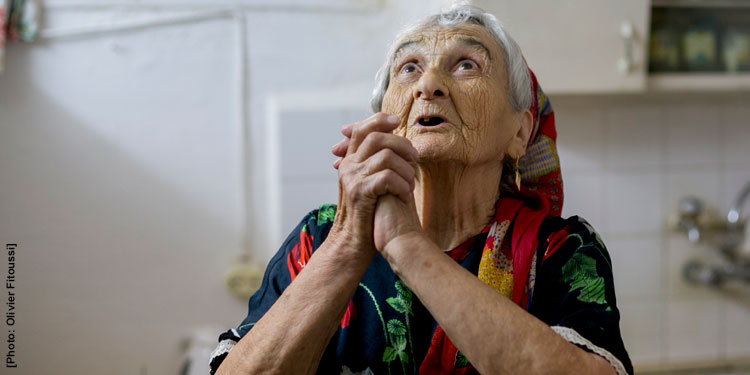A Gift for God
The Fellowship | March 10, 2019

The hebrew word for love is ahava, which comes from the root word, hav, “to give.” In Judaism, to love is to give. Giving to others forms the connection that enables us to love one another. Join us as we offer a devotional series exploring the Jewish perspective on love.
What shall I return to the LORD
for all his goodness to me? — Psalm 116:12
Think of a time when you have been the beneficiary of such kindness that you simply had no words to thank the giver. How about our parents, our friends and family who have supported and loved us – can we ever thank them enough? How about God, who gave us everything that we have, including our very lives? Can we ever sufficiently thank Him?
In Psalm 116, King David found himself asking this very question: “What shall I return to the LORD for all his goodness to me?” King David described a time when he had been close to death and then was saved by God. He said that God stopped his tears from flowing and his feet from stumbling.
The Jewish sages explain that this psalm was written when David ascended the throne. At this joyous moment, David was overflowing with gratitude. But how could he, a mere mortal, thank God? What could he give to the One who lacks nothing?
Here is David’s answer: “I will lift up the cup of salvation and call on the name of the LORD” (v. 13). The sages explain that this is referring to the wine libation, a part of the thanksgiving offering that David would bring to God. David gave back to God in the way that God had prescribed: by bringing Him sacrifices.
But what can we, who no longer have the option of bringing sacrifices to the Lord, give to God today?
The Hebrew word for sacrifices is karbon, which comes from the word karob, meaning “close.” The sacrifices brought to God were not about the meat or wine or flour that was presented to Him. It was about the closeness made possible by the sacrifice. By serving God, the worshiper became closer to Him. As the prophets explained time and time again, God has no desire for mere rituals. What God wants is us.
God wants our hearts. He wants to be a part of our lives. He wants us to turn to Him in prayer, with our troubles and our gratitude. As our loving Father in heaven, He wants nothing more than closeness with His children. God loves us infinitely, but to have a relationship, we need to love Him back.
When we offer up our prayers, we bring a gift to God. When we sit and read our Bible, we give a gift to God. When we apply the teachings to our lives and make God the focus of our lives, we give Him great pleasure. God gave us our bodies; we bring Him our soul.
Download our complimentary Bible study, “The Life of Ruth,” to learn more about a Jewish perspective on love and this courageous young foreigner, whose love and devotion to the God of Israel led to unexpected blessings.
